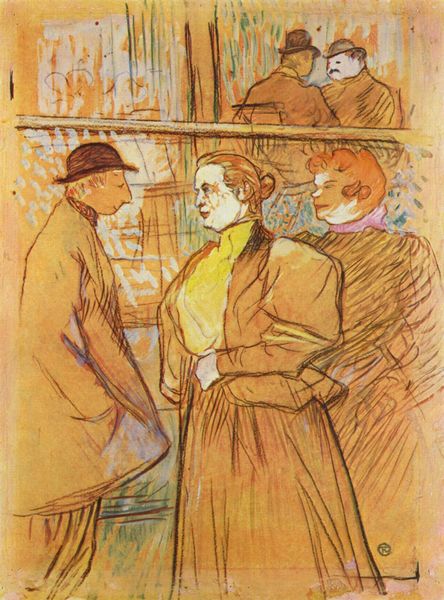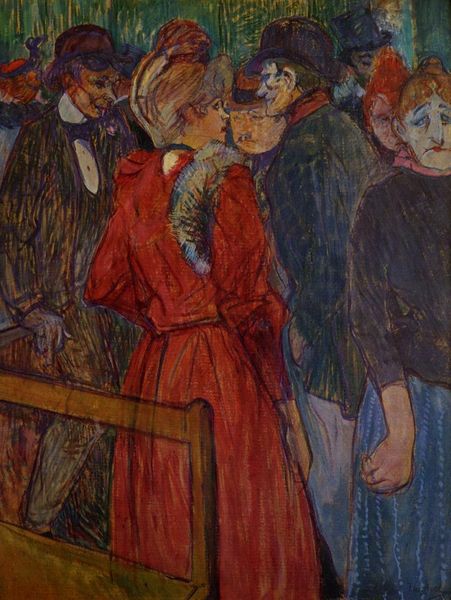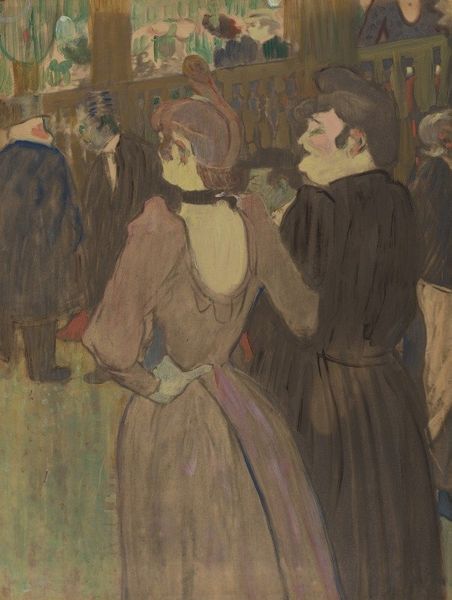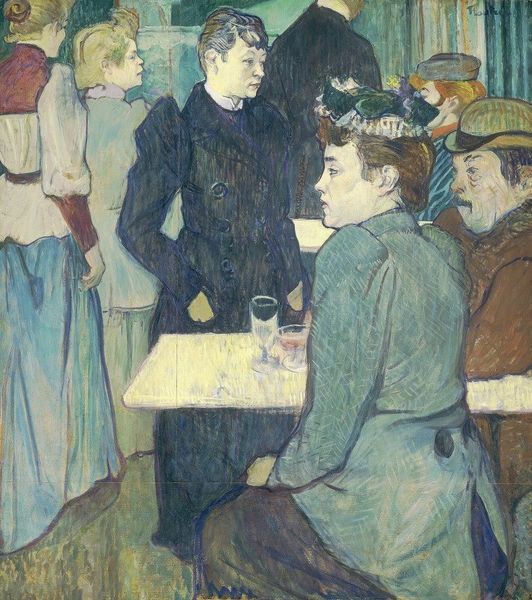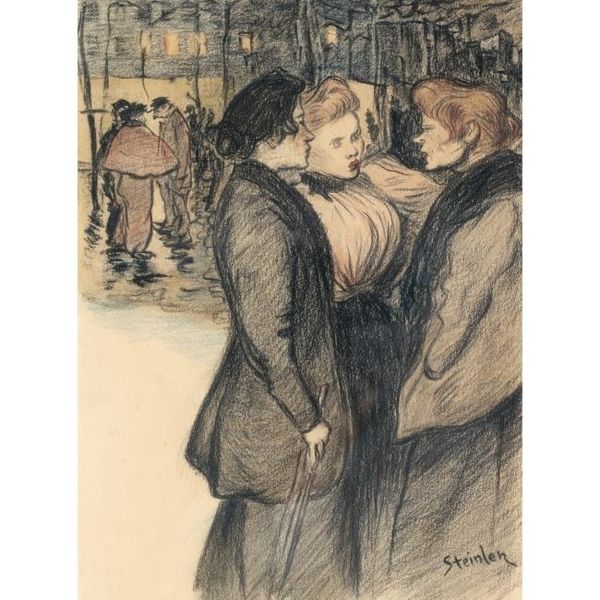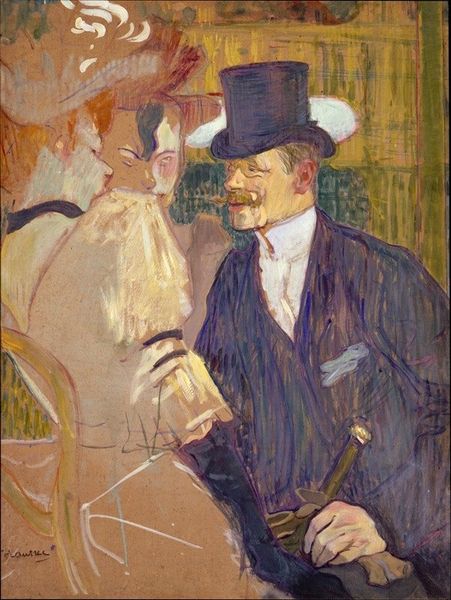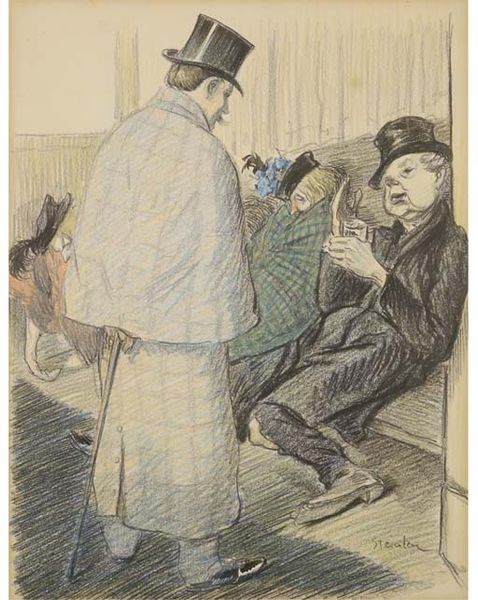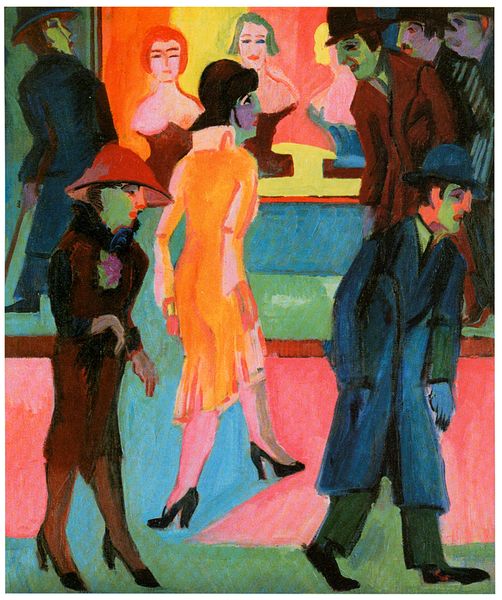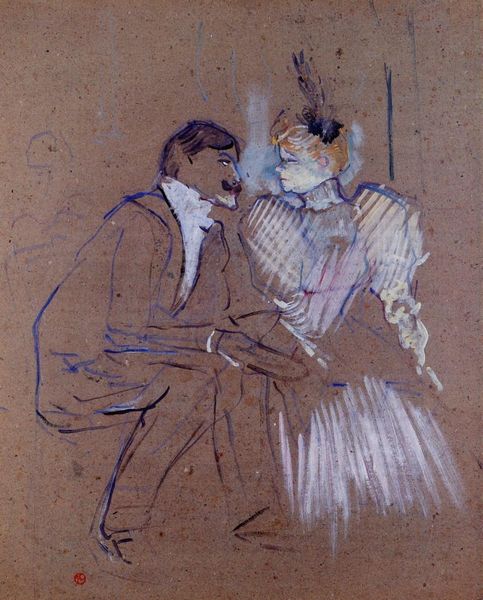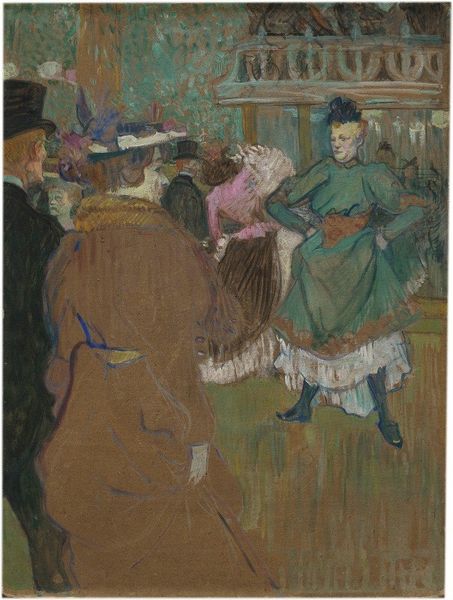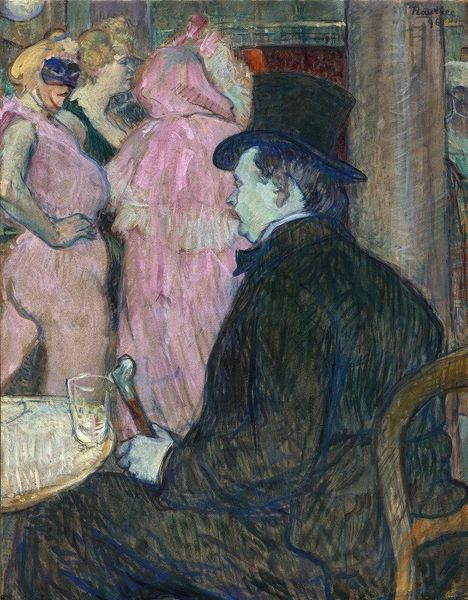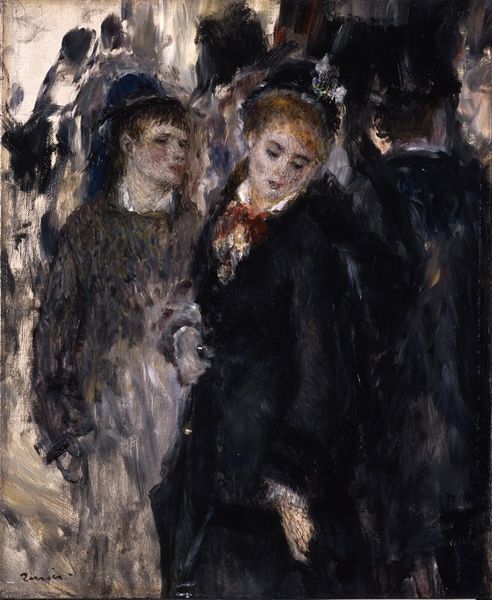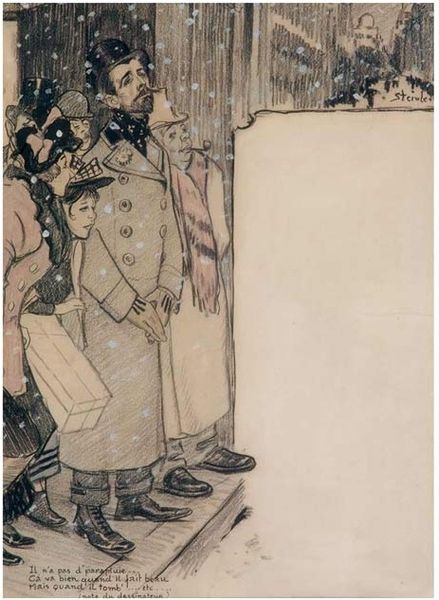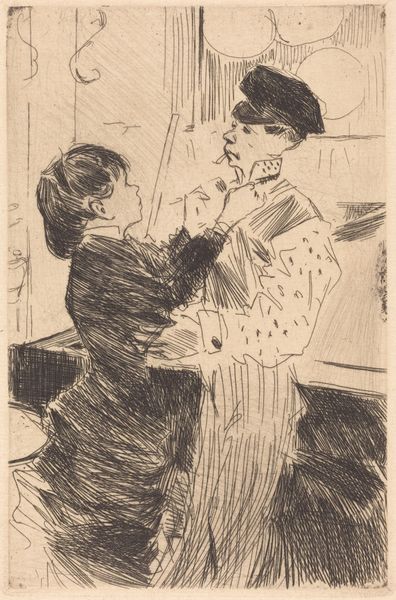
painting, watercolor
#
portrait
#
figurative
#
painting
#
watercolor
#
intimism
#
cityscape
#
genre-painting
#
post-impressionism
Copyright: Public Domain: Artvee
Henri de Toulouse-Lautrec made this painting, Alfred la Guigne, using oil on cardboard. This artwork encapsulates the essence of Parisian nightlife in the late 19th century, particularly the cabarets and bars frequented by a mix of social classes. Lautrec's image creates meaning through its candid portrayal of individuals in a social setting. The quick, expressive brushstrokes and the choice of a low viewpoint contribute to the sense of immediacy and informality, immersing the viewer in the scene. It's clear that Lautrec's artistic vision was profoundly shaped by the cultural milieu of Montmartre, with its vibrant arts scene and bohemian lifestyle. To better understand this artwork, we might turn to sources on the history of entertainment, leisure, and social life in France during the Belle Époque. By examining these resources, we gain a deeper appreciation for how artists like Lautrec challenged social norms and explored the complexities of modern life through their art. Ultimately, this painting reflects the power of art to capture the spirit of an era and to provoke reflection on the social forces that shape our world.
Comments
No comments
Be the first to comment and join the conversation on the ultimate creative platform.
